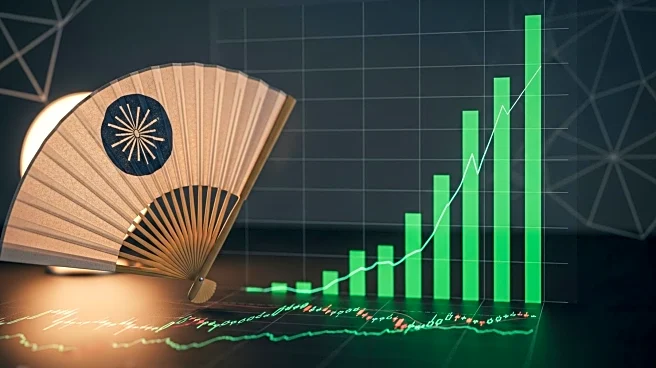What is the story about?
What's Happening?
The 2025 Shanghai Cooperation Organization (SCO) Summit in Tianjin has significant implications for Japanese equities, as the U.S. under President Trump continues to impose tariffs. The summit emphasized a multipolar world order, with efforts to reduce reliance on U.S.-centric trade systems. Japan, although not a member of the SCO, is strategically positioned between these global forces. The summit's outcomes, including de-dollarization efforts and regional trade integration, are reshaping investor sentiment and affecting the Nikkei 225's performance.
Why It's Important?
The SCO's push for a multipolar trade order presents both challenges and opportunities for Japan. The U.S. tariffs on Japanese auto exports and other goods have created uncertainty in the market, impacting Japan's trade dynamics. The summit's focus on regional integration and alternative payment mechanisms could offer Japan new avenues for trade diversification. However, the ongoing tariff pressures from the U.S. pose risks to Japan's economic stability and investor confidence. The situation underscores the complexities of navigating international trade relations in a shifting geopolitical landscape.
What's Next?
Japan's ability to adapt to these changing dynamics will be crucial in maintaining its economic resilience. The country may need to explore new trade partnerships and strategies to mitigate the impact of U.S. tariffs. Additionally, Japan's participation in regional trade agreements and its investments in Southeast Asia could play a role in balancing its economic interests. The future trajectory of the Nikkei 225 will depend on how effectively Japan navigates these challenges and capitalizes on emerging opportunities.
















